Home / Food Color in Spain

Shrey Dye Chem, a renowned food colors manufacturers and supplier in Spain, has been proudly serving the industry since 2006. Our significant presence extends both domestically and globally, establishing us as a well-known manufacturer in the Spain for the precise composition of Food Dyes, Direct Dyes / Acid Dyes, Natural food Color and Industrial Food Color. We specialize in providing excellent products that meet a wide range of industrial requirements. Our vast portfolio offers a wide variety of Food ingredients, synthetic food colors, blends, and lake colors. Shrey Dye Chem takes pleasure in providing an exclusive assortment of natural food colors that demonstrate our commitment to serving the different needs of our loyal customers. Food colors are substances added to foods or beverages to impart, enhance, or change their color. They are used to improve the visual attractiveness of food products, replace natural colors that are lost during processing, or achieve a specific desired color. Food colors can be generated from natural sources such as plants, fruits, and vegetables.
Our vibrant world of food dyes and coloring solutions at [Shrey Dye Chem Ind.], your premier source for top-quality Food Coloring Powder and ingredients in the Spain. Food dyes, also known as food coloring or color additives, are substances added to food and beverages to enhance or impart color. They are used to make food products visually appealing, create a specific appearance, or replace colors lost during processing. Food dyes can be classified into two main types: natural and synthetic. Food coloring powder is a type of food coloring that is dried and powdered. It is more easily incorporated into dry ingredients such as flour or sugar and is commonly used in baking and confectionery.
Natural Food Coloring Ingredients: Anthocyanins, Chlorophyll, Beta-carotene, Curcumin, Beet Juice Powder, Caramel
Synthetic Food Coloring Ingredients: Tartrazine (FD&C Yellow No. 5), Allura Red (FD&C Red No. 40), Brilliant Blue (FD&C Blue No. 1), Sunset Yellow (FD&C Yellow No. 6), Erythrosine (FD&C Red No. 3), Indigo Carmine (FD&C Blue No. 2)
The purity of a food coloring refers to the degree to which it is free from impurities, contaminants, or other substances.
The intensity or strength of the color produced by a food coloring is a critical specification.
Food colorings should be stable under various conditions such as exposure to light, heat, and pH changes.
Regulatory agencies set limits for the acceptable daily intake (ADI) of food colorings based on safety assessments.
For powdered or granulated food colorings, specifications may detail acceptable particle size ranges to ensure uniform dispersion in food products.
Limits on heavy metal levels, such as lead, arsenic, cadmium, and mercury, are frequently set to avoid potential health hazards.
Color |
Common Name |
Food Color No. |
C.I.No |
Min Value |
Max Value |
Tartrazine |
Yellow 4 |
19140 |
150/- |
550/- |
|
Sunset Yellow |
Yellow 3 |
15985 |
200/- |
1310/- |
|
Carmoisine |
Red 3 |
14720 |
150/- |
500/- |
|
Ponceau 4R |
Red 7 |
16255 |
160/- |
2100/- |
|
Amaranth |
Red 9 |
16185 |
199/- |
1500/- |
|
Allura Red |
Red 17 |
16035 |
200/- |
1780/- |
|
Brilliant Blue |
Blue 2 |
42090 |
150/- |
1851/- |
|
Indigo Carmine |
Blue 1 |
73015 |
150/- |
398/- |
|
Erythrosine |
Red 14 |
45430 |
500/- |
4000/- |
|
Black PN |
Black 1 |
28440 |
264/- |
3850/- |
|
Red 2G |
Red 10 |
18050 |
60/- |
1000/- |
|
Brown HT |
Brown 3 |
20285 |
209/- |
1600/- |
|
Patent Blue V |
Blue 5 |
42051 |
99/- |
4000/- |
|
Quinoline Yellow |
Yellow 13 |
47005 |
150/- |
2400/- |
|
Green S |
Green 4 |
44090 |
60/- |
560/- |
We{ Shrey Dye Chem Ind} is one of top manufacturer and exporter of Direct Dyes in Spain. Direct dyes are a class of synthetic dyes that are commonly used to color textiles, fabrics, and, in some cases, certain types of paper. Unlike many other types of dyes, direct dyes are capable of directly coloring the substrate without the need for additional chemicals or mordants to fix the color. Direct dyes are water-soluble, which means they dissolve in water, making them easy to apply to fabrics during the dyeing process. Direct dyes are primarily used for dyeing cellulosic fibers, such as cotton, rayon, and linen. The dyeing procedure using direct dyes normally entails soaking the fabric in a dye solution containing the dye, followed by rinsing and washing to remove any excess dye.
We are Well-known manufacturer and suppliers of all types Acid Dyes in Spain like, acid black dyes, acid blue dyes, acid brown dyes, acid orange dyes, acid red dyes, acid violet dyes etc. Acid dyes are a type of synthetic dye that is especially useful for dyeing protein-based fabrics like wool, silk, and nylon. They are dubbed "acid dyes" because their use necessitates an acidic atmosphere. These dyes are water-soluble and include anionic (negatively charged) groups, which allow them to interact with cationic (positively charged) sites on protein fibers. The dyeing process with acid dyes involves immersing the fibers in a dye bath containing the dye and an acid, heating the mixture, and allowing the dye to penetrate and bond with the fibers. Acid dyes are commonly used in the textile industry for dyeing wool and silk fabrics, as well as nylon fibers used in the production of carpets and synthetic textiles.
We are leading manufacturer, supplier and exporter of Solvent Dyes in Spain. Solvent dyes are a type of dye that dissolves in organic solvents but not water. These dyes are frequently used to color non-polar substances like polymers, hydrocarbon-based waxes, oils, and synthetic materials. In contrast to water-soluble colors, solvent dyes do not require a water-based medium for application. Instead, they are usually dissolved in organic solvents before being applied to the intended substrate. Solvent dyes are especially designed to dissolve in organic solvents such as alcohols, ketones, and hydrocarbons, but they are not water soluble. Solvent dyes are versatile and find applications in various industries. Common uses include coloring plastics, waxes, oils, synthetic resins, and other .

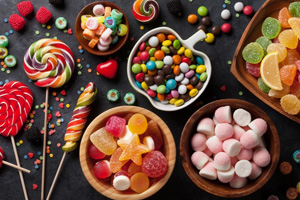
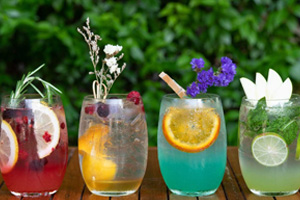
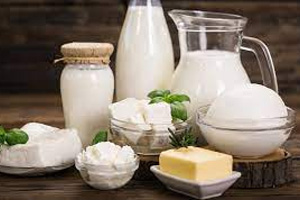

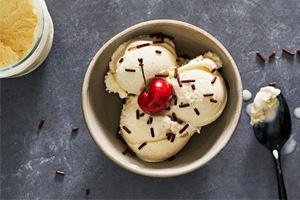
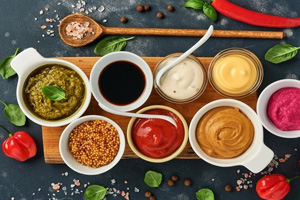
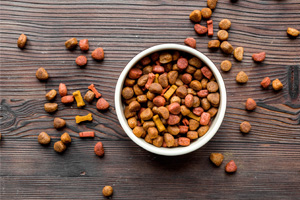
Shrey Dye Chem, we take pride in being recognized as the world's leading food colors manufacturer, supplier, and exporter in Spain. With a commitment to quality, innovation, and customer satisfaction, we have established ourselves as a preferred choice in the industry. We believes in fostering long-term partnerships with our clients. We are dedicated to understanding your unique needs and delivering solutions that go beyond expectations. Explore the richness of our synthetic food colors, each hue telling a story of vibrancy and versatility. Alternatively, indulge in the authenticity of our natural food colors, where the essence of nature graces your culinary creations.
Synthetic food colors are generally considered safe when used within approved limits. However, there has been some controversy and research suggesting a potential link between certain synthetic colors and hyperactivity in children. Regulations vary by country, and some colors have been banned or restricted in certain regions.
The shelf life of food colors depends on various factors, including storage conditions and the specific type of colorant. In general, they have a relatively long shelf life, but exposure to light, heat, and air can impact their stability over time.
Food colors are typically listed on the ingredient label of packaged foods. They are often identified by their specific names or numerical codes. Common terms include "artificial color," "color added," or the name of the specific color.
Yes, food colors can be mixed to create a wide range of colors. This is commonly done in both commercial food production and home cooking. Understanding color theory can help achieve the desired shades and tones.
Some food colors are also approved for use in cosmetics, pharmaceuticals, and other non-edible products. However, the regulations and approved uses may differ between applications, so it's crucial to check the specific guidelines for each industry.